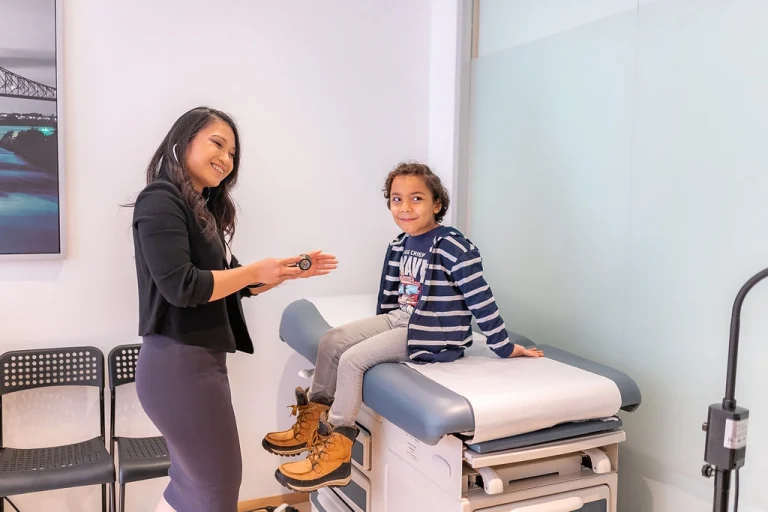UTIs: Understanding Prevention, Recognizing Symptoms, and Knowing When to Seek Care
UTIs: Understanding Prevention, Recognizing Symptoms, and Knowing When to Seek Care
Urinary tract infections (UTIs) are among the most common bacterial infections, affecting millions of Canadians each year. These uncomfortable and sometimes painful infections can disrupt daily life, but with the right knowledge about prevention and early intervention, many UTIs can be avoided or quickly addressed before complications develop.
At Care& Family Health, we regularly help patients manage and prevent UTIs through comprehensive care and education. Understanding this common condition is an important part of taking control of your health.
What Is a UTI?
A urinary tract infection occurs when bacteria enter and multiply within any part of the urinary system—the kidneys, ureters, bladder, or urethra. While UTIs can affect anyone, they’re particularly common in women, who are approximately eight times more likely to develop them than men due to anatomical differences, including a shorter urethra.
Most UTIs affect the lower urinary tract (the bladder and urethra). When confined to the bladder, the infection is called cystitis. If the infection travels up to the kidneys, it becomes a more serious condition called pyelonephritis, which requires prompt medical attention.
Recognizing UTI Symptoms
Knowing the warning signs of a UTI can help you seek appropriate care before the infection worsens. Common symptoms include:
Early/Mild Symptoms
- A persistent urge to urinate, even when little urine is produced
- A burning sensation during urination
- Cloudy, strong-smelling urine
- Pelvic pressure or discomfort in the lower abdomen
- Urine that appears pink, red, or cola-colored (indicating blood)
More Severe Symptoms
- Pain in the side, back, or groin
- High fever (over 38°C/101°F)
- Shaking or chills
- Nausea and vomiting
- Increased fatigue or general weakness
It’s important to note that symptoms can vary by individual and by the location of the infection in the urinary tract. Some people, particularly older adults, may experience atypical symptoms or no symptoms at all, which can make diagnosis challenging.
Who’s at Higher Risk?
While anyone can develop a UTI, certain factors can increase your risk:
- Biological sex: Women have a significantly higher risk due to their shorter urethra, which provides bacteria easier access to the bladder.
- Sexual activity: Sexual intercourse can introduce bacteria into the urinary tract.
- Menopause: Declining estrogen levels can change the urinary tract’s bacterial environment.
- Birth control: Diaphragms and spermicidal agents may increase risk.
- Urinary tract abnormalities: Structural issues can impede complete bladder emptying.
- Urinary procedures: Catheterization and other procedures can introduce bacteria.
- Suppressed immune system: Conditions like diabetes can reduce the body’s ability to fight infections.
- Recent antibiotic use: This can disrupt the natural flora that helps protect against infection.
Evidence-Based Prevention Strategies
Preventing UTIs involves several practical strategies that can be incorporated into your daily routine. Healthcare providers at medical clinics across Toronto regularly recommend these approaches:
Stay Well-Hydrated
Drinking plenty of water helps flush bacteria from the urinary system. Aim for 2-3 liters daily unless otherwise advised by your healthcare provider. Water is preferable to other beverages for this purpose.
Practice Good Hygiene
- Wipe from front to back after using the toilet to prevent bacterial spread from the anal area to the urethra.
- Clean the genital area before sexual activity.
- Urinate shortly after sexual intercourse to help flush out bacteria.
Make Dietary Adjustments
- Cranberry products may help prevent UTIs in some people, though scientific evidence is mixed.
- Limit irritating foods and beverages if you’re prone to UTIs, including alcohol, caffeine, spicy foods, and artificial sweeteners.
Choose Appropriate Clothing
- Wear breathable, cotton underwear.
- Avoid tight-fitting pants or bottoms that can create warm, moist environments where bacteria thrive.
Consider Probiotics
Some research suggests that probiotics, particularly those containing Lactobacillus, may help maintain a healthy bacterial balance and reduce UTI risk.
Evaluate Birth Control Methods
If you experience recurrent UTIs and use spermicides or diaphragms, consider discussing alternative birth control methods with your healthcare provider.
When Home Management Is Appropriate
If you experience mild UTI symptoms and are generally healthy, some home care strategies may help manage symptoms while you arrange to see a healthcare provider:
- Increase fluid intake: This helps flush bacteria from the urinary tract.
- Apply heat: A warm (not hot) heating pad on your abdomen may help relieve discomfort.
- Avoid irritants: Temporarily eliminate alcohol, caffeine, spicy foods, and other potential bladder irritants.
- Take over-the-counter pain relievers: Non-prescription medications like ibuprofen may help with discomfort.
However, it’s important to note that while these measures may provide temporary relief, they don’t treat the underlying infection. Antibiotics are typically necessary to eliminate the bacteria causing the infection.
When to Seek Professional Healthcare
Knowing when to transition from home management to professional care is crucial. At Care&, we recommend seeking medical attention in the following situations:
Seek Care Promptly If:
- You experience UTI symptoms for the first time
- Symptoms persist for more than 48 hours
- Symptoms are severe or worsening
- You have recurrent UTIs (more than two in six months)
- You see blood in your urine
- You experience fever, chills, nausea, or vomiting
- You have diabetes, are pregnant, or have a compromised immune system
- You’re male (as UTIs in men are less common and may indicate underlying issues)
Prompt medical care helps prevent complications like kidney infections, which can lead to permanent kidney damage or sepsis in severe cases.
The Diagnostic Process
When you visit a medical clinic for suspected UTI symptoms, the diagnostic process typically includes:
Medical History
Your healthcare provider will ask about your symptoms, their duration, previous UTIs, and any factors that might increase your risk.
Physical Examination
This may include an examination of your abdomen, flanks, and possibly a pelvic examination depending on your symptoms and medical history.
Urinalysis
This simple urine test can quickly detect signs of infection like white blood cells, red blood cells, and nitrites. Results are often available within minutes at clinics with on-site lab services.
Urine Culture
For recurrent or complicated UTIs, your sample may be sent to a laboratory to identify the specific bacteria causing the infection and determine which antibiotics will be most effective. Results typically take 24-48 hours.
Additional Tests
If you have recurrent UTIs or complicated symptoms, your provider might recommend additional testing such as:
- Ultrasound
- CT scan
- Cystoscopy (examining the inside of the bladder with a camera)
- Urodynamic testing (evaluating bladder function)
Treatment Approaches for UTIs
Most uncomplicated UTIs respond well to antibiotic treatment. The specific antibiotic, dosage, and duration depend on your health status and the infection’s severity.
First-Line Treatments
- Antibiotics: Commonly prescribed options include nitrofurantoin, trimethoprim/sulfamethoxazole, fosfomycin, or certain cephalosporins. Treatment duration ranges from a single dose to 5-7 days for uncomplicated cases.
- Pain relief: Your provider may recommend specific medications to alleviate urinary pain and discomfort while the antibiotics take effect.
For Recurrent UTIs
- Low-dose prophylactic antibiotics: For those with frequent infections, preventive antibiotics may be prescribed.
- Post-intercourse antibiotics: A single dose taken after sexual activity may be recommended for those whose UTIs are related to sexual activity.
- Vaginal estrogen therapy: For postmenopausal women with recurrent UTIs.
Complex Cases
More severe infections, particularly those affecting the kidneys, may require:
- Hospitalization
- Intravenous antibiotics
- Extended treatment durations
- Comprehensive evaluation for underlying causes
Special Considerations for Different Groups
UTIs During Pregnancy
UTIs during pregnancy require prompt attention as they can lead to complications including premature labor and low birth weight. Treatment typically involves pregnancy-safe antibiotics and closer monitoring.
UTIs in Children
Children with UTIs may present with different symptoms, including fever, irritability, poor feeding, or new bedwetting. Comprehensive evaluation is important as UTIs in children may indicate underlying anatomical issues.
UTIs in Older Adults
Seniors may experience atypical symptoms like confusion, agitation, or general malaise without the classic burning sensation. Prompt diagnosis and treatment are essential to prevent serious complications.
UTIs in Men
UTIs are less common in men and may indicate an underlying issue such as prostate enlargement, kidney stones, or structural abnormalities. More extensive evaluation is often necessary.
The Impact of Telemedicine on UTI Care
The landscape of healthcare has evolved, with virtual appointments becoming increasingly valuable for conditions like UTIs. At Care&, we’ve seen how telemedicine can enhance access to care in several ways:
- Faster Access: Virtual appointments can often be arranged quickly, allowing for prompt assessment of symptoms.
- Convenience: Patients can discuss symptoms from home, which is particularly valuable when experiencing the frequent urination associated with UTIs.
- Follow-up Care: Virtual check-ins make it easier to monitor recovery and adjust treatment plans if necessary.
- Educational Opportunities: Telehealth appointments provide excellent opportunities for detailed discussions about prevention strategies.
For many UTI cases, providers can make an accurate assessment through a thorough discussion of symptoms and medical history. If a physical examination or lab tests are needed, an in-person appointment can be arranged.
The Role of Comprehensive Healthcare in UTI Management
Managing and preventing UTIs is most effective within the context of ongoing, comprehensive healthcare. Unlike episodic care at walk-in clinics, having an established relationship with a healthcare provider offers several advantages:
- Knowledge of Your History: A provider familiar with your medical history can more quickly identify patterns and risk factors for UTIs.
- Personalized Prevention Strategies: Recommendations can be tailored to your specific situation and lifestyle.
- Continuity of Care: For recurrent UTIs, having the same provider monitor your condition over time leads to more consistent and effective management.
- Comprehensive Approach: Addressing UTIs within the context of your overall health can reveal connections to other conditions or medications that might be contributing factors.
At Care& Family Health, our Nurse Practitioners provide care that rivals traditional family doctor services, offering unrushed appointments to thoroughly address concerns like UTIs and develop personalized prevention plans.
Looking Forward: Emerging Approaches to UTI Management
The field of UTI prevention and treatment continues to evolve. Some promising developments include:
- Vaccines: Researchers are working on vaccines that could prevent recurrent UTIs by targeting the most common bacteria that cause these infections.
- Non-antibiotic treatments: As antibiotic resistance increases, alternative treatments like D-mannose (a type of sugar) are being studied for their role in preventing bacterial adherence to the urinary tract.
- Innovative diagnostic tools: More rapid and precise diagnostic technologies may soon allow for faster identification of the specific bacteria causing an infection, enabling more targeted treatment.
- Enhanced understanding of the microbiome: Research into the urinary microbiome (the community of microorganisms that naturally inhabit the urinary tract) may lead to probiotic approaches that help maintain a healthy bacterial balance.
Taking Control of Your Urinary Health
Understanding UTIs is an important aspect of managing your overall health. By recognizing risk factors, implementing prevention strategies, and knowing when to seek care, you can significantly reduce the impact these infections have on your life.
If you’re experiencing UTI symptoms or have concerns about recurrent infections, connecting with a healthcare provider who can offer comprehensive care is an important step. At Care& Family Health, we believe in providing the time and attention needed to address both immediate concerns and long-term prevention strategies.
Our Nurse Practitioners offer appointments that start on time and provide the unhurried care needed to thoroughly address urinary health concerns. With locations in Lawrence Park and Yorkville, on-site lab services for convenient testing, and both in-person and virtual appointment options, we make it easy to access the care you need when UTI symptoms arise.
Frequently Asked Questions
Can UTIs resolve without antibiotics?
While some very mild UTIs might resolve on their own, most require antibiotic treatment to clear the infection completely. Without proper treatment, UTIs can progress to kidney infections, which are more serious and may cause permanent damage. Increasing fluid intake and using over-the-counter pain relievers may help with symptoms, but they don’t eliminate the underlying bacterial infection.
How quickly should antibiotics start working for a UTI?
Many people experience symptom improvement within 24-48 hours after starting antibiotics. However, it’s essential to complete the entire prescribed course of antibiotics, even if symptoms disappear, to ensure the infection is completely eliminated. If symptoms don’t improve or worsen after 48 hours of treatment, contact your healthcare provider, as the antibiotic may not be effective against the specific bacteria causing your infection.
What’s the difference between a UTI and a yeast infection?
UTIs and yeast infections both cause genital discomfort but have different symptoms and causes. UTIs are bacterial infections affecting the urinary tract, causing painful urination, frequency, urgency, and possibly lower abdominal pain. Yeast infections are fungal overgrowths in the vagina, resulting in itching, burning, and thick white discharge. The treatments differ significantly—antibiotics for UTIs and antifungal medications for yeast infections. Some people experience both simultaneously, particularly after antibiotic treatment for a UTI.
If I’m prone to UTIs, how can I access care quickly when symptoms appear?
For those with recurring UTIs, having an established relationship with a healthcare provider is valuable. At Care&, our subscription model offers unlimited appointments with Nurse Practitioners who can provide comprehensive UTI care. Members can often secure same or next-day appointments at one of our Toronto locations when symptoms arise. Our virtual appointment options are particularly convenient for UTI symptoms assessment, allowing you to discuss your symptoms and determine if an in-person visit is necessary without leaving home. Having your medical history readily available in our system also facilitates faster, more personalized care when UTI symptoms appear.
Can certain foods or drinks prevent or treat UTIs?
While no food or drink can cure an existing UTI, some dietary choices may help with prevention. Cranberry products have been widely studied, with mixed results; they may help prevent bacteria from adhering to the urinary tract walls in some individuals. Staying well-hydrated is perhaps the most important dietary strategy, as it helps flush bacteria from the urinary system. Probiotic foods containing Lactobacillus might help maintain a healthy bacterial balance. During an active infection, it’s advisable to avoid potential bladder irritants like alcohol, caffeine, spicy foods, and artificial sweeteners, which can exacerbate symptoms.
Less Wait Time, More Face Time
Visit www.careand.ca to register
Contact Information:
📞 Phone: +1-647-951-4770
📧 Email: helpdesk@careand.ca
🌐 Website: www.careand.ca
Disclaimer:
This article is for informational purposes only and does not constitute medical advice. Always consult with a qualified healthcare provider for personal medical guidance. The information provided is general in nature and may not apply to individual circumstances.







